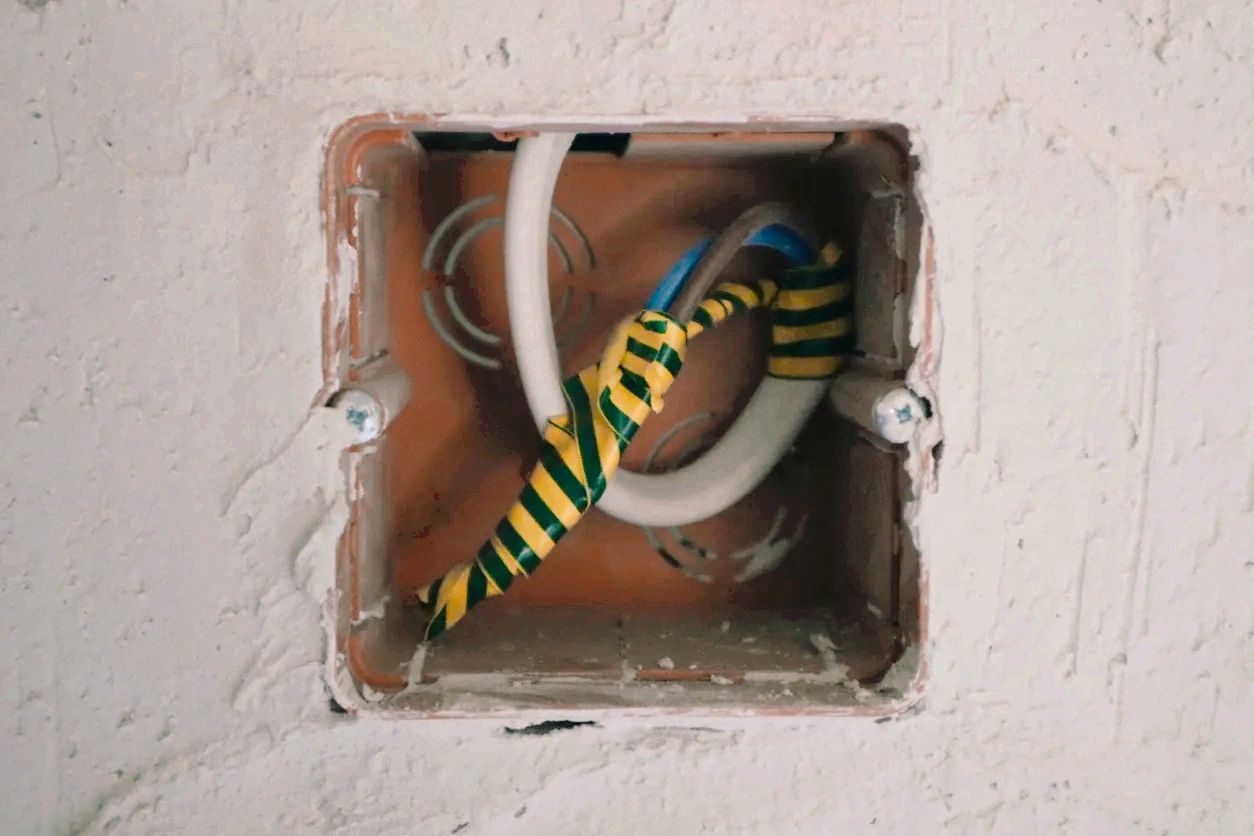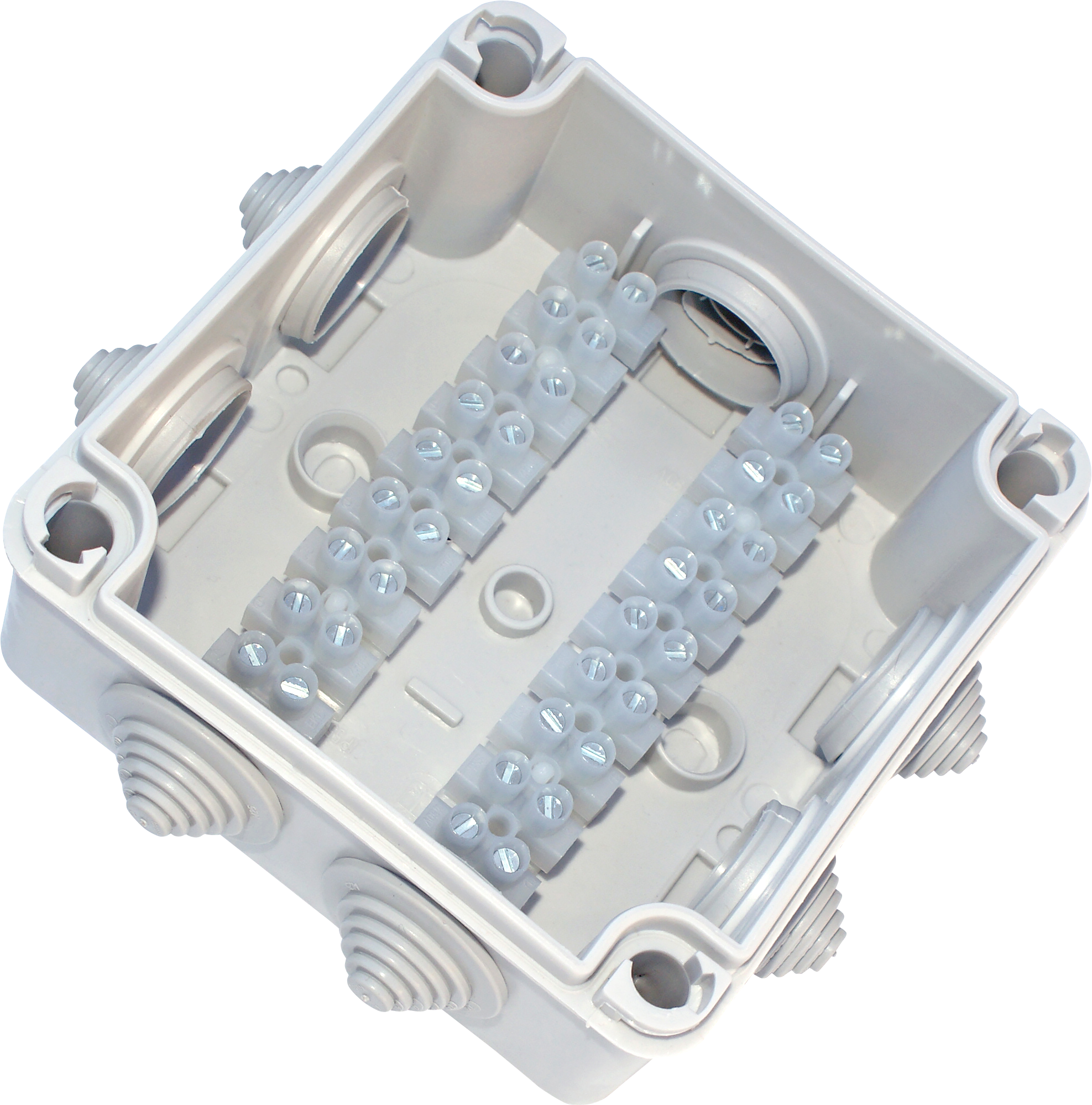Wonderful Tips About Why Do We Need A Junction Box

The Difference Between Pull Box , Back And Junction YouTube
Junction Boxes
1. Why Bother with These Things?
Let's be honest, when you're tackling an electrical project, a junction box might seem like an unnecessary extra step. You're thinking, "Can't I just twist these wires together, slap some electrical tape on them, and call it a day?" Well, technically, you could. But that's like saying you could drive a car without seatbelts. It might work for a while, but you're significantly increasing your chances of a nasty surprise down the road. Junction boxes are more than just metal or plastic containers; they're crucial safety components in your electrical system. They protect your wiring and your home from potential hazards. Imagine them as tiny fortresses, guarding against short circuits, fires, and other electrical gremlins.
Think of your home's electrical wiring as a complex network of roads. Junction boxes are the intersections where these roads meet. Instead of cars and trucks, you have electrical wires connecting and branching off to power your lights, appliances, and everything else that makes your life comfortable (and keeps your fridge running!). Without a properly installed junction box, those wire connections are exposed — vulnerable to damage, moisture, and accidental contact. And trust me, you don't want to be the one accidentally making contact with exposed wiring!
The primary function of a junction box is to provide a safe and enclosed space for electrical connections. It's a dedicated spot where wires can be joined, terminated, or redirected. By containing these connections within a box, you prevent them from coming into contact with combustible materials like wood or insulation. This significantly reduces the risk of a fire, which is a pretty good reason to use one, if you ask me. Think of it as a little fire extinguisher for your wiring. It might not put out a full-blown blaze, but it can certainly prevent one from starting in the first place.
Beyond fire safety, junction boxes also protect the wires themselves. They shield them from physical damage, moisture, and dust. This is especially important in damp or dusty environments, like basements or garages. Imagine a wire rubbing against a sharp edge in your wall for years. Eventually, the insulation will wear away, exposing the bare wire and creating a potential shock hazard. A junction box prevents this by keeping the wires safely tucked away and protected.

Why Do Bosch Dishwashers Need A Junction Box Home Guide Corner
Safety First
2. It's Not Just About Following Code
Let's talk about the real danger: fire. We're not trying to scare you, but electrical fires are a very serious threat. A loose or poorly insulated wire connection can generate heat, and that heat can ignite nearby materials. A junction box, when properly installed, acts as a barrier, preventing that heat from spreading. It's like having a mini fire wall within your walls. It's a simple, inexpensive precaution that can save your home — and potentially your life.
Think about it this way: exposed wires are like unattended candles. They might look harmless enough, but they're a potential fire hazard just waiting to happen. A junction box is like a candle holder, keeping the flame contained and preventing it from setting the curtains on fire. Okay, maybe that's a bit dramatic, but you get the idea. It's about mitigating risk and creating a safer environment.
Many people see junction boxes as just another requirement of electrical codes. While it's true that using them is generally mandated by code, that's because the codes are based on decades of experience and data showing that junction boxes drastically reduce the risk of electrical fires. It's not just some arbitrary rule; it's a safety measure that has been proven to work. So, even if you're a bit of a rebel who likes to bend the rules, this is one rule you definitely don't want to break.
Furthermore, improper wiring without junction boxes can lead to arc faults. Arc faults are essentially unintended electrical discharges or sparks that occur when electricity jumps from one conductor to another. These arcs can generate intense heat, quickly igniting surrounding materials. Junction boxes contain the connections, minimizing the chance of arc faults spreading and causing a fire. So, it's not just about preventing existing fires; it's also about preventing them from starting in the first place.

What Is A Junction Box? + It Used For?
Keeping Things Organized
3. Future You Will Thank You
Beyond safety, junction boxes offer a significant advantage when it comes to troubleshooting electrical problems. Imagine trying to trace a wiring issue in a wall filled with tangled, unlabeled wires. It's like trying to find a specific grain of sand on a beach. A junction box provides a centralized and organized location for your connections, making it much easier to identify and fix problems. Think of it as a well-organized toolbox for your electrical system.
When you need to work on your wiring in the future, a junction box provides a safe and convenient place to disconnect and reconnect wires. You don't have to worry about accidentally touching live wires or creating a short circuit. It's a controlled environment where you can work with confidence. It's like having a designated workspace for your electrical projects, keeping things neat, tidy, and safe.
Moreover, a properly labeled junction box can save you hours of frustration. By clearly marking the wires and connections within the box, you can quickly identify the circuit you're working on and avoid accidentally disconnecting the wrong wires. This is especially helpful when dealing with complex wiring systems. It's like having a detailed map of your electrical system, guiding you through the maze of wires and connections.
Let's be honest, nobody enjoys electrical work. It can be tedious, confusing, and potentially dangerous. But a junction box can make the process a little less painful by providing a clear and organized structure for your wiring. It's a small investment that can pay off big time in terms of convenience and peace of mind. Think of it as a little gift to your future self.

Code Compliance and Peace of Mind
4. Sleep Soundly Knowing You Did It Right
As mentioned earlier, electrical codes generally require the use of junction boxes for all wire connections. This isn't just some bureaucratic hurdle; it's a set of guidelines designed to ensure the safety and integrity of your electrical system. By following these codes, you're not only protecting your home from fire hazards, but you're also ensuring that your electrical work meets a certain standard of quality. It's like getting a seal of approval for your wiring.
If you ever decide to sell your home, having properly installed junction boxes can be a major selling point. It shows potential buyers that you've taken the time to maintain your home's electrical system and that you've followed all the necessary safety precautions. It's like showing off a clean bill of health for your house. It can give buyers peace of mind and make your home more attractive.
Furthermore, if you ever need to file an insurance claim for electrical damage, having properly installed junction boxes can make the process much smoother. Insurance companies are more likely to approve claims if your electrical work meets code requirements. It's like having a safety net in case something goes wrong. It can protect you from financial losses and ensure that your home is properly repaired.
Ultimately, using junction boxes is about peace of mind. It's about knowing that you've done everything you can to protect your home and your family from electrical hazards. It's about sleeping soundly at night knowing that your wiring is safe, secure, and up to code. It's a small investment that can make a big difference in your overall well-being.

Electrical Junction Box Wiring Diagram
Choosing the Right Junction Box
5. And Material, and Location...
So, you're convinced that junction boxes are a good idea (hopefully!). But now you're faced with another decision: which type of junction box should you use? There are a variety of sizes, shapes, and materials to choose from, and the right choice will depend on your specific application. Don't just grab the cheapest box you can find; take the time to consider your needs and select the appropriate box for the job.
The size of the junction box is crucial. You need to make sure that it's large enough to accommodate all the wires and connections you'll be making. Overcrowding a junction box can lead to overheating and increase the risk of a short circuit. A good rule of thumb is to err on the side of caution and choose a box that's slightly larger than you think you need. It's better to have too much space than not enough.
The material of the junction box is also important. Metal boxes are generally more durable and offer better protection against physical damage. Plastic boxes are lighter and easier to work with, and they're also non-conductive, which can be an advantage in certain situations. Choose the material that best suits your needs and the environment where the box will be installed. If it's an environment where there's going to be moisture, a non-metallic enclosure is always best practice.
Finally, consider the location where the junction box will be installed. If it's in a damp or wet environment, you'll need to choose a weatherproof box. These boxes are designed to protect the wiring from moisture and corrosion. If it's in a high-traffic area, you'll need to choose a box that's durable enough to withstand accidental bumps and impacts. Choose wisely, my friend!

Electrical Junction Box With Terminal Blocks Inrikobet
FAQ
6. Your Burning Questions Answered
Still have some questions about junction boxes? No problem! Here are a few frequently asked questions to help clear things up:
Q: Can I bury a junction box in the wall?
A: Absolutely not! Junction boxes must always be accessible. That means you can't cover them up with drywall or insulation. They need to be accessible for inspection and maintenance.Q: Can I use a junction box outdoors?
A: Yes, but you'll need to use a weatherproof junction box that's specifically designed for outdoor use. These boxes are sealed to protect the wiring from moisture and the elements.Q: What happens if I don't use a junction box?
A: You're increasing the risk of fire, shock, and electrical problems. It's also a code violation. Just use a junction box. Seriously.Q: Can I extend an electrical wire using a junction box?
A: Yes, that's one of the main uses for a junction box. You can safely extend wires by making the connections inside the box.Q: Do I need to turn off the power before working with a junction box?
A: YES! Always turn off the power at the breaker before working on any electrical wiring. Safety first!